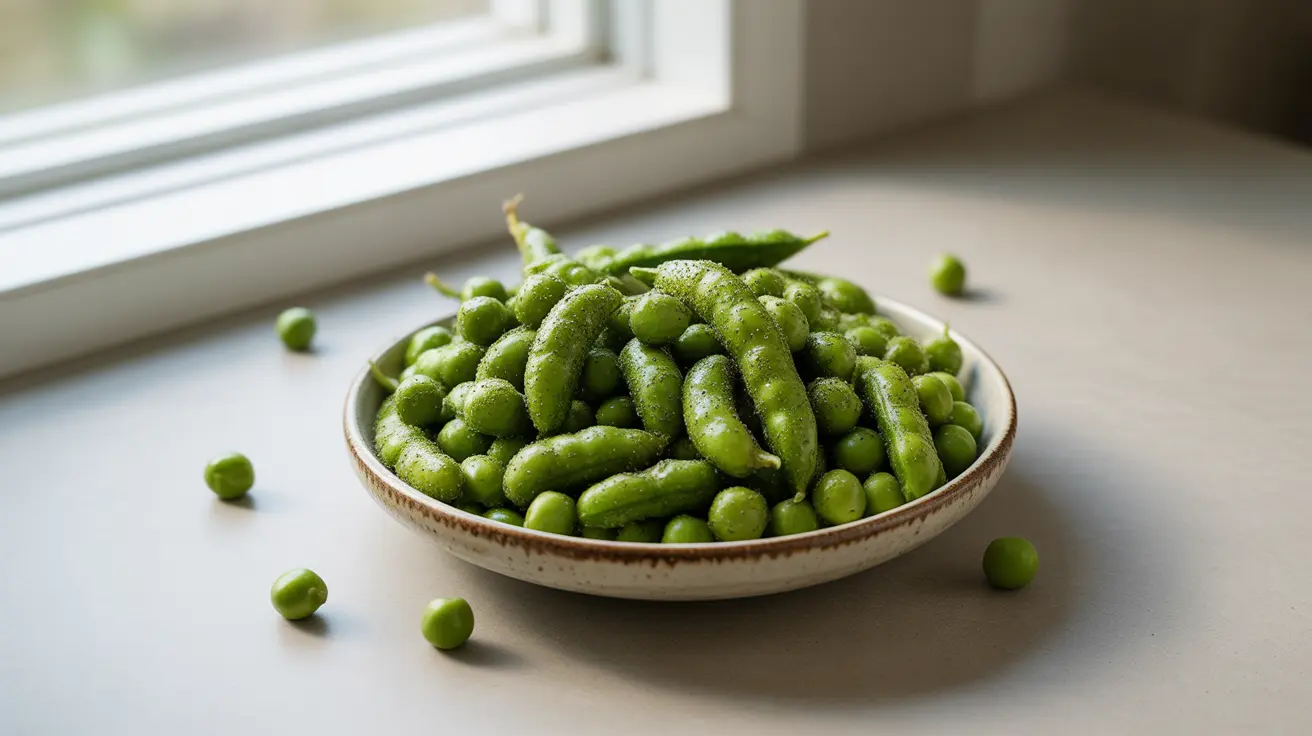For those seeking a crunchy, flavorful snack with a kick, wasabi peas have become an increasingly popular choice. These crispy, spicy-coated dried peas offer a unique combination of taste and texture that sets them apart from traditional snack options. But the question remains: are wasabi peas healthy? Let's explore their nutritional profile and health implications to help you make an informed decision about including them in your diet.
What Are Wasabi Peas?
Wasabi peas are green peas that have been dried and coated with a seasoning mixture that typically includes wasabi, soy sauce, and other flavorings. The signature spicy kick comes from wasabi powder, though many commercial versions use horseradish-based alternatives to create that characteristic heat.
Nutritional Profile of Wasabi Peas
Protein and Fiber Content
Wasabi peas offer several nutritional advantages. A typical 1/4 cup serving contains approximately:
- 4-5 grams of protein
- 3-4 grams of dietary fiber
- 120-140 calories
- Complex carbohydrates
The protein content helps contribute to satiety, while the fiber supports digestive health and helps maintain steady blood sugar levels.
Micronutrients and Minerals
These crunchy snacks provide several essential nutrients:
- Iron from the dried peas
- B-vitamins
- Small amounts of calcium
- Trace minerals
Health Benefits and Considerations
Positive Health Aspects
Wasabi peas offer several potential health benefits when consumed as part of a balanced diet:
- Support for digestive health through fiber content
- Plant-based protein source
- Lower fat content compared to many processed snacks
- Potential metabolic benefits from wasabi compounds
Points of Caution
While wasabi peas can be part of a healthy diet, there are some factors to consider:
- Sodium content is often high
- Some brands add sugar or artificial ingredients
- Portion control is important due to calorie density
- May not be suitable for those with certain spice sensitivities
Making Healthy Choices
When selecting wasabi peas, consider these tips:
- Read nutrition labels carefully
- Choose brands with minimal added ingredients
- Watch portion sizes
- Compare sodium content between different options
Frequently Asked Questions
Are wasabi peas a healthy snack option compared to other crunchy snacks?
Wasabi peas can be a healthier alternative to many traditional crunchy snacks, offering more protein and fiber while typically containing less fat than potato chips or similar processed snacks. However, portion control remains important due to their calorie content.
What are the nutritional benefits of eating wasabi peas, including fiber and protein content?
Wasabi peas provide approximately 4-5 grams of protein and 3-4 grams of fiber per 1/4 cup serving, along with essential B-vitamins, iron, and other minerals. These nutrients support satiety, digestive health, and overall nutrition.
Should I be concerned about the sodium or sugar levels in wasabi peas when choosing a brand?
Yes, sodium content can be a concern in wasabi peas, with some brands containing significant amounts. It's important to read labels carefully and choose products with lower sodium content. Sugar levels vary by brand, so look for options with minimal added sugars.
How can eating wasabi peas affect digestion and gut health?
The fiber content in wasabi peas can support healthy digestion and regular bowel movements. However, the spicy coating may cause discomfort for some individuals with sensitive digestive systems or acid reflux.
Are wasabi peas suitable for low-carb or weight-loss diets given their calorie density?
While wasabi peas contain complex carbohydrates and are relatively calorie-dense, they can fit into a weight-loss diet when consumed in moderation. However, they may not be suitable for strict low-carb diets due to their carbohydrate content. Portion control is key for weight management.




